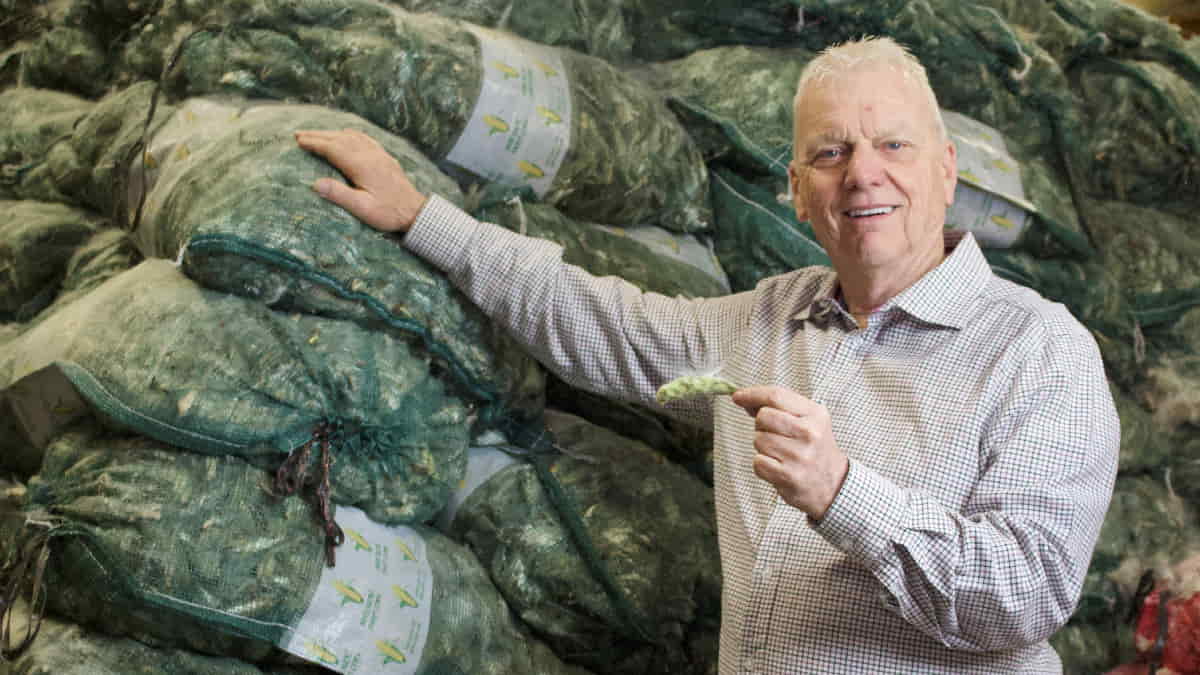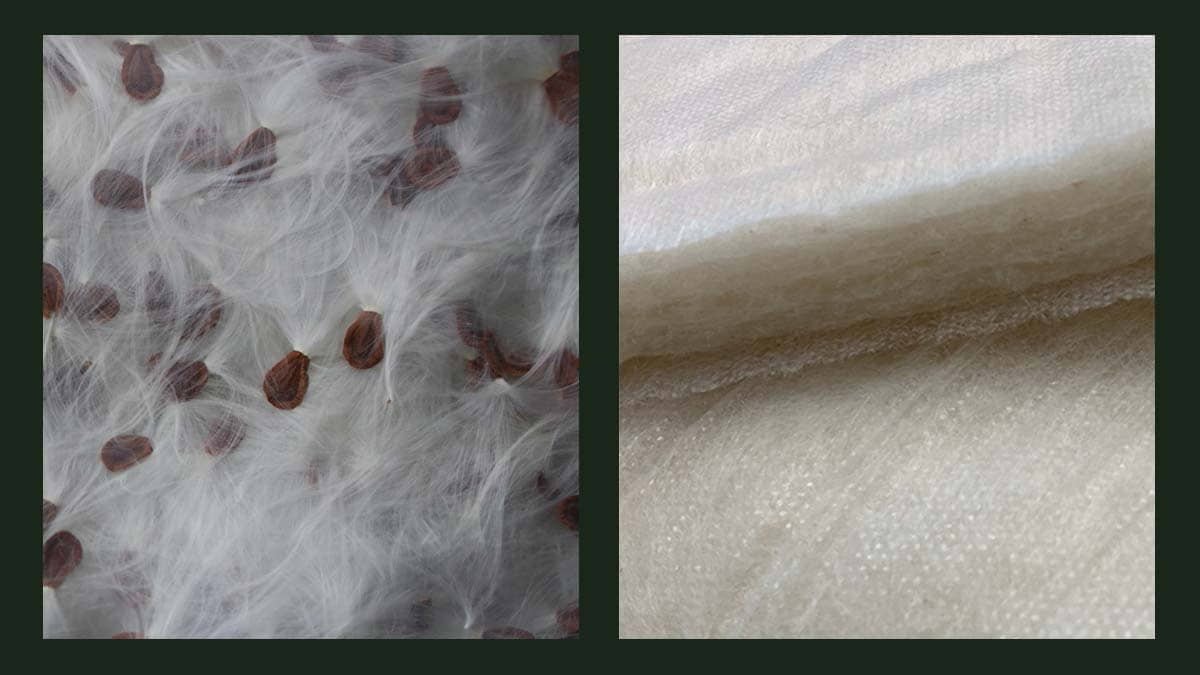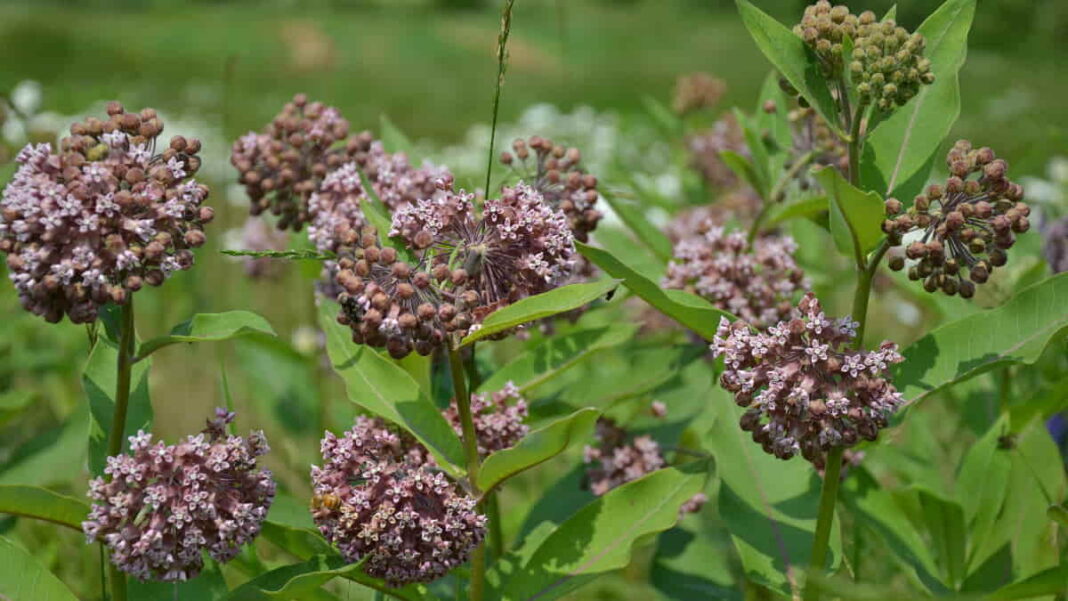Canada-based Vegeto, operating in the field of sustainable production and processing of vegetable textile fibres, introduced a high-performance textile insulation material obtained from milkweed. The innovative product takes its place in the market as a preferred and environmentally friendly solution for the outdoor clothing and equipment market, especially jackets, handwear, and sleeping bags, offering a new and environmentally friendly alternative to synthetic products generally obtained from petroleum derivatives or animal-sourced materials.
General Manager of Vegeto Ghyslain Bouchard said; “This new insulation material fills a gap in the textile industry: a plant-based, eco-friendly insulation textile that makes no compromise on performance. Our alternative, conceived and produced in Canada, does not rely on the usual model of using animal-sourced or petroleum-based products. We are sowing the seeds of change for the entire garment and textile industry”.
Innovative and vegan textile insulation material
When choosing a textile insulation material, the selection is limited to synthetic products, mostly composed of petroleum derivatives, or animal-sourced materials. Besides, synthetic materials have harmful effects on the environment from production to their end of use. Ghyslain Bouchard mentioned that; to reduce a product’s impact at the end of its useful life, Vegeto uses plant-based components that will break down into industrial compost at the end of the garment’s or accessory’s useful life. In addition, it is stated that the perception of fur and duvets is changing and Bouchard pointed out that the efficiency of the duvet cannot be denied, but that it is quite expensive and does not fit the vegan lifestyle. Bouchard said; “Our insulation material succeeds in combining performance and respect for the environment and animals”.

“The special form of milkweed makes it an excellent thermal insulation material”
The non-woven laminated textile insulation is a mix of milkweed and kapok fibres, and a biopolymer made from cornstarch. Its tests are conducted at an independent laboratory (CTT Group), confirming the product’s exceptional thermal insulation properties. While the CLO value ranges from 2.5 to 4.5, depending on the weight of the chosen product (100 g/m2, 150 g/m2, 200 g/m2 and 250 g/m2), this weight range meets the insulation needs for mild spring weather as well as for winter’s frigid temperatures.
Ghyslain Bouchard relayed; “Study of the milkweed fibre’s properties revealed that its tubular form makes it an excellent thermal insulation material” and disclosed that the hollow part of the fibre stores air and maintains temperature. Bouchard stated that it is this natural characteristic, which synthetic materials try to reproduce, that inspired them to create their milkweed insulation textile.
“Field to fibre”
Past investments in the development of machinery have today led to the efficient processing of plants into textile fibres. Vegeto meets the ever-growing demand for green raw materials and develops a ‘field to fibre’ transformation process exclusive in Canada and they have the capacity to produce innovative and high-performance textile blends thanks to the technical expertise of their team. Textile engineers, agronomists and machinery operators work hand in hand to manufacture this new generation of eco-friendly materials in this scope.
It is stated that although widely common in Canada, milkweed and its virtues remain rather unknown and Vegeto works with Canadian farmers wishing to harvest a stable milkweed crop meeting textile-grade standards. Growing demand for the indigenous plant leads the company to consolidate more and more partnerships with farmers to ensure long term supply.

“Milkweed is the fibre of the future”
Ghyslain Bouchard said; “I have always said that milkweed was the fibre of the future” and added that they persevered through their unsuccessful trials and built the machinery they needed to process the fibre. Bouchard underlined that they have always believed in this project and stated; “The high-performance product we now have on hand proves that it was all worthwhile”.
Bouchard relayed that they want to work with manufacturers who share their business philosophy and disclosed; “What Vegeto has accomplished sets the pace for the industry and we hope to get manufacturers on board and inspire them to explore further, off the beaten path”.
